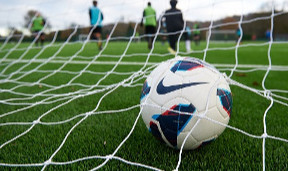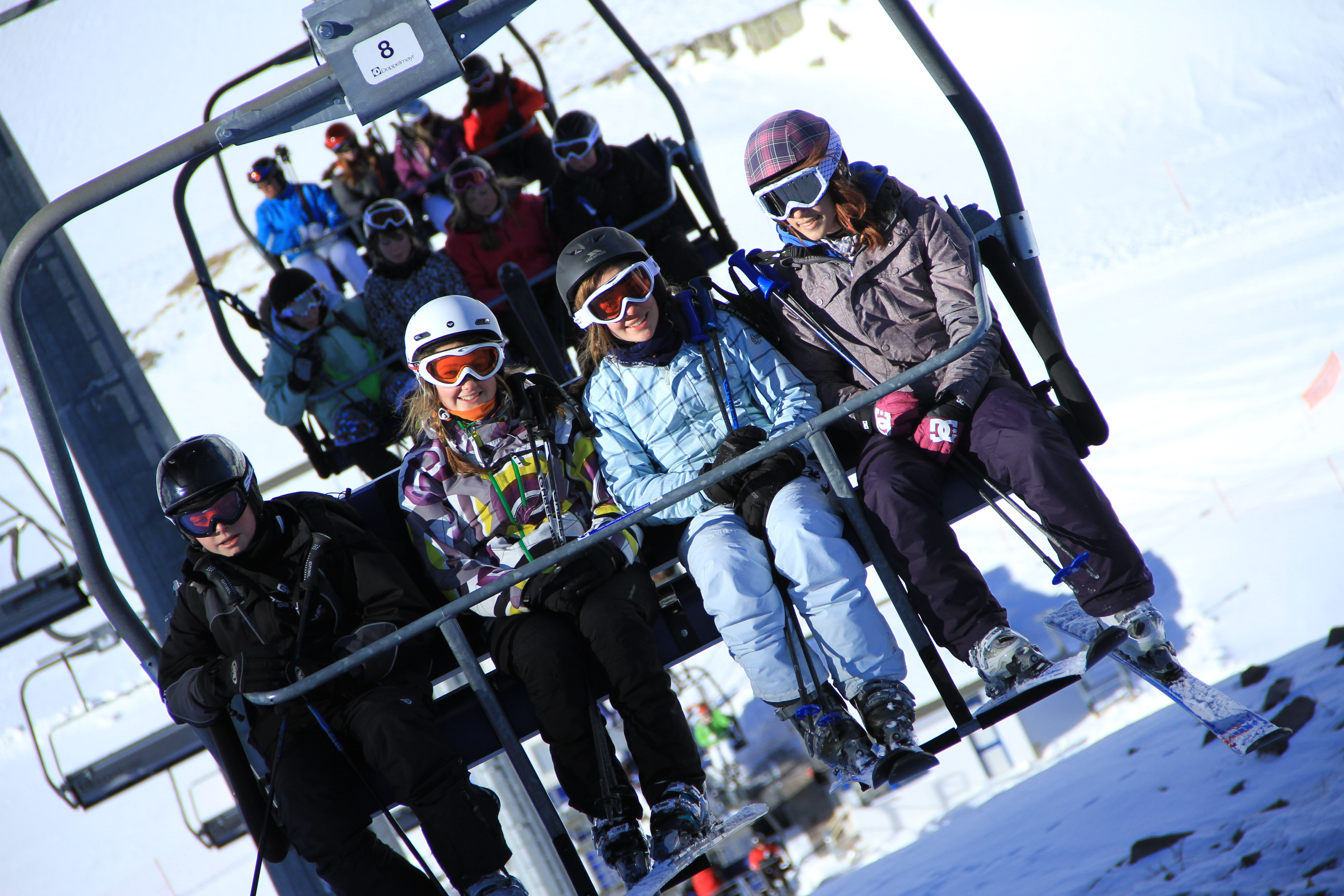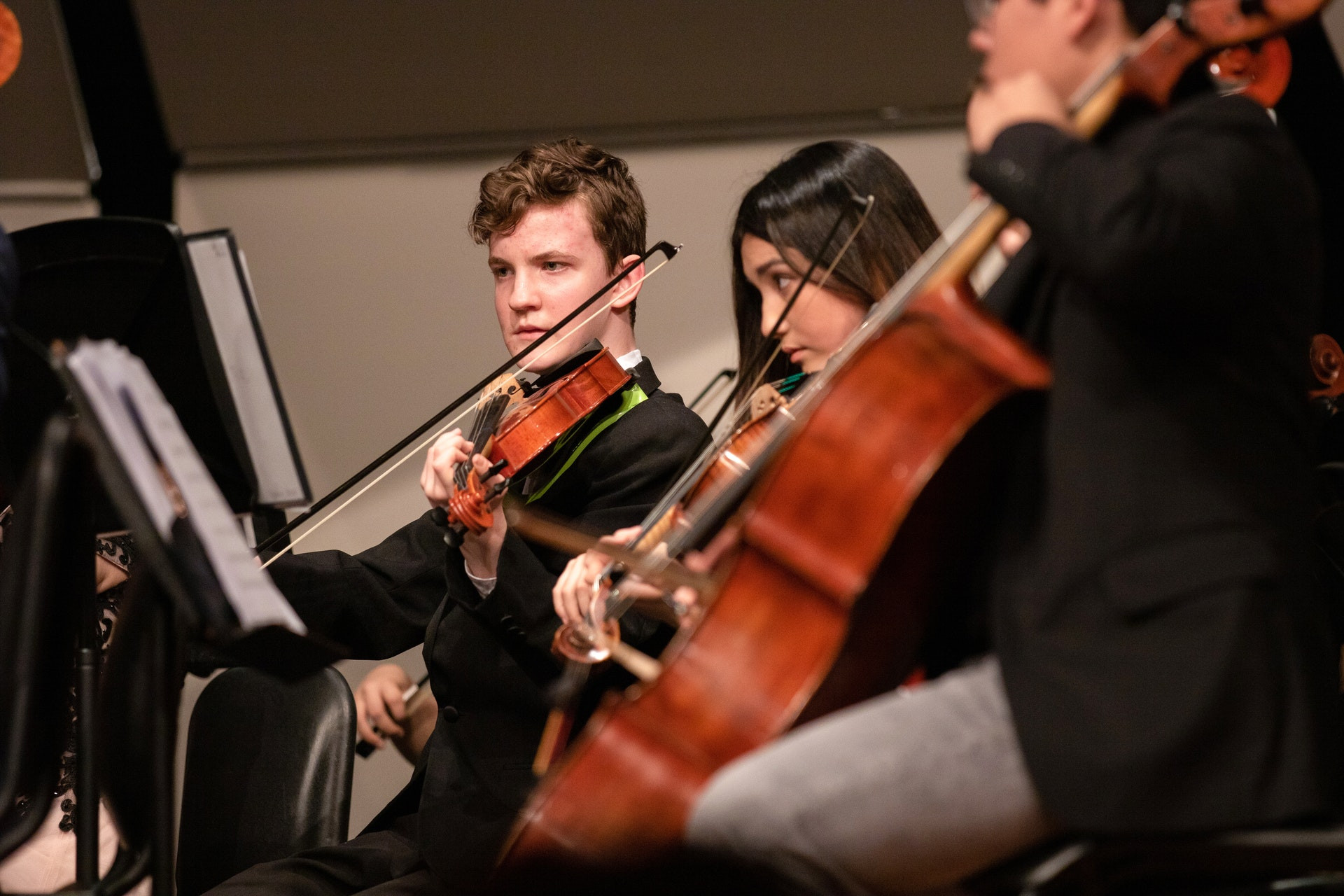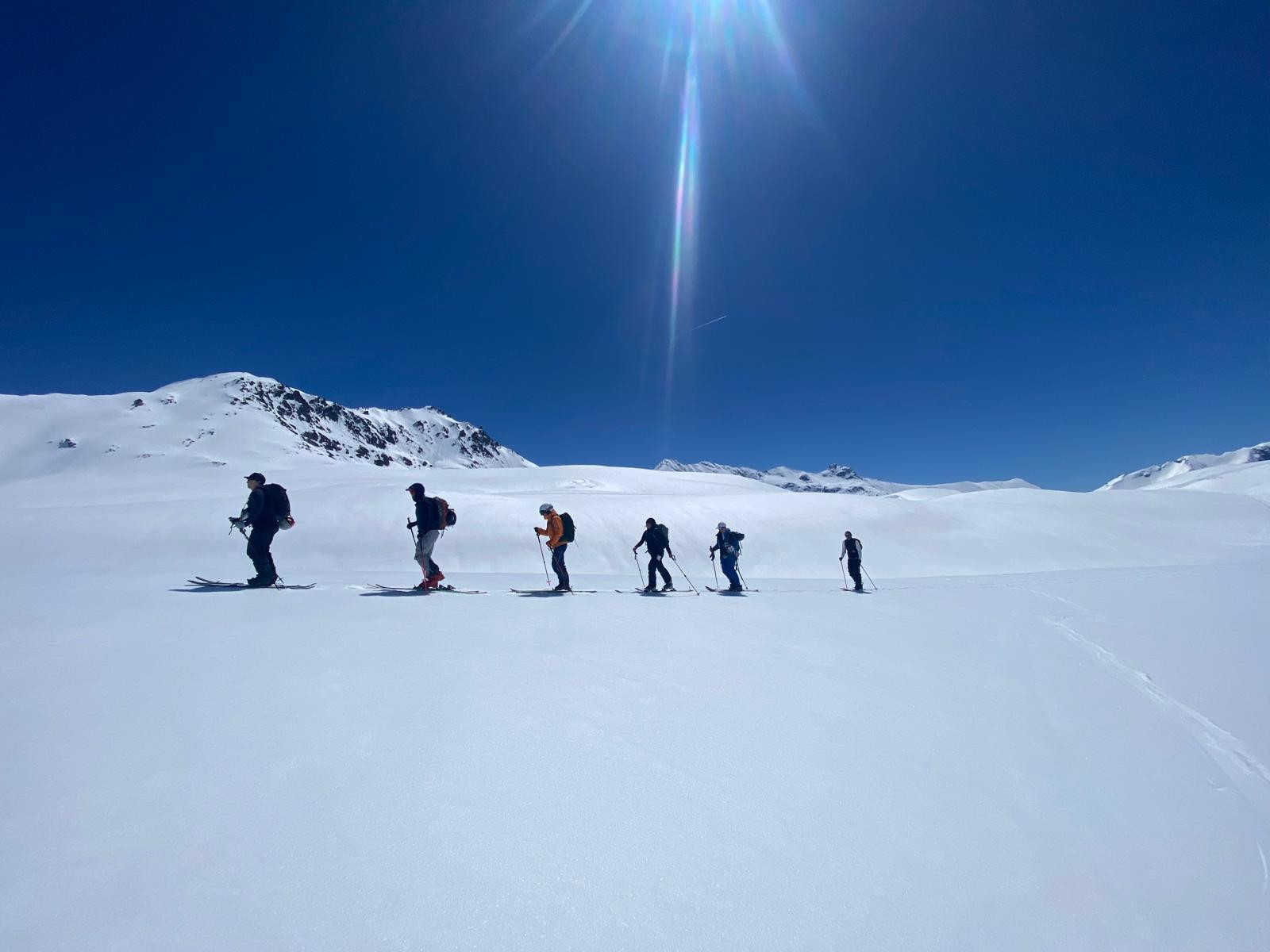Reflections on Mountain Safety Training – BASI Level 3 in Tignes, France
As the ski season winds down and the snow begins to melt, signs of spring are returning to the mountains. I recently had the opportunity to spend a week in Tignes, France, completing a Mountain Safety Course as part of my BASI Level 3 ski instructor qualification. It was a challenging and deeply informative week that underscored just how much there is to learn and to respect in the mountain environment. For five days we spent on average 9 hours per day on the mountain, climbing, navigating, learning, and skiing! Evening study, daily preperation and written exams followed!
The BASI Mountain Safety module is one of the seven modules needed to be a BASI Level 3 ski instructor. The module itself qualifies instructors to lead groups off-piste within the resort boundary, making mountain awareness and group management essential components of the course. Over the week, we were trained and assessed across several critical areas:
Group Leadership Off-Piste
We learned how to safely guide a group through complex terrain, applying the CLAP principle:Communication – communicating clearly and concisely with the group
Line of Sight – maintaining a visual line of sight with the group when in off-piste terrain
Avoidance (of hazards) – keeping the group away from any hazards such as terrain traps, avalanche pitches (where the risk is too high)
Position of Most Usefulness (as a leader) – understanding and demonstrating where you should be at anytime to maximise group safety.
Avalanche Awareness
This included interpreting avalanche forecasts, understanding the European Avalanche Danger Scale, recognizing contributing weather and terrain factors, and identifying dangerous layers in the snowpack, such as persistent weak layers.Transceiver Search Skills
We practiced using avalanche transceivers to locate buried beacons within a strict time limit—an essential rescue skill.Basic Navigation
Competency with map and compass was essential—we needed to pinpoint our location at any moment, interpret surrounding terrain, and chart safe, efficient routes.Personal Off-Piste Performance
Our own skiing ability in variable and challenging terrain was assessed to ensure we could perform confidently while leading others.Personal Fitness
Physical fitness was critical—not just for skiing but for skinning, hiking, and handling demanding days at altitude.Mountain Awareness
We were expected to demonstrate a holistic understanding of mountain hazards, including terrain traps, weather changes, and route choices.Skinning & Track Setting
We practiced efficient skinning techniques and how to set a safe, sustainable uphill track.Professionalism
Throughout the course, maintaining a professional attitude and behaviour was key—being reliable, prepared, and calm under pressure.
At Absolute Travel and Tours, our school groups stay on-piste! But this week was a reminder that mountain leadership is about more than just skiing skill—it’s about decision-making, risk management, and a constant awareness of your surroundings. We believe that it's important for students of all ability levels to remember that the mountains demand respect, whatever the weather and terrain. For me, personally, this course deepened not just my technical ability, but also my appreciation for the responsibility that comes with guiding others off-piste. Having self-confidence and the ability to act as a leader are areas in which I am trying to improve - in all aspects of my life - and to discover what my potential truly is......
Happy skiing!
Ed
Ed Lunn
Absolute Travel and Tours School Ski trip Operations









